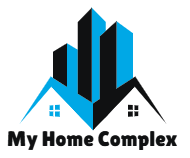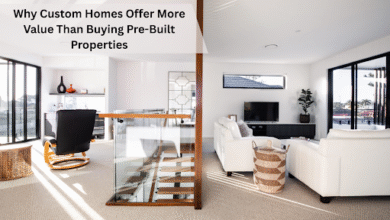How to Buy a Property with No Deposit

Buying a home is one of the most intimidating, especially if you don’t have a big chunk of savings to put down as a deposit. In this guide, we’ll walk you through how to buy a property with no deposit—from determining whether it’s possible for your situation to getting started.
Is it possible?
It can be done, but it’s not easy. You’ll need to find a lender that will accept you as a client and make sure your repayments are affordable. Another problem is that you may have to pay a higher interest rate than if you had a deposit. Some lenders will only lend up to 80% of the property’s value, while others go up to 90%.
Lending on such small amounts of equity means they require more protection against loss if things go wrong, so the banks charge higher interest rates than they would normally do for someone with more equity in their property. However, some lenders may be willing to lend more than usual depending on your circumstances.
The complexity of buying without a deposit
Buying a property with no deposit is a pretty complicated process. In many cases, you’ll need to pay rent until you’ve saved up enough money for your first home. This means that it may take longer for you to buy your first home than someone who paid their deposit upfront.
If you don’t have much experience renting in the area where you want to buy, then this could also be an issue – especially if the property market is particularly hot at the moment.
The risks involved in buying without a deposit are higher than if you were putting down some cash upfront, but they’re usually manageable as long as you’re well-informed on what’s going on with your finances and can make sure everything stays under control.
Low-deposit products
There are several low-deposit home loans that you can use if you’re trying to purchase a property without a deposit.
Traditionally, banks and lenders have offered these types of products only to first-home buyers who meet certain criteria, such as having good credit scores and stable employment. However, some lenders are beginning to extend this type of loan to investors. In addition, many have relaxed the rules around borrowing money with no or little deposit to sell more mortgages.
Low-deposit loans typically come with high-interest rates that make it expensive for borrowers who miss repayments or don’t pay off their debts on time. They also require good credit ratings from borrowers (at least above 700) before they’ll consider their applications for finance approval – because otherwise, default risk would be too high for offers from multiple lenders within this category.
Equity options
Equity options are a way to buy a property without paying a deposit. You can use your existing, already-owned home as collateral and borrow up to 80% of the value of that property.
This means that you can get into the market with no deposit and no mortgage—but it’s not all good news. You need to have equity in your existing property and be able to afford the repayments on both properties at once.
First home loans
A first home loan is a type of loan that allows you to borrow money for the purchase of your first property. It usually requires a 20% deposit, which is equivalent to $20k for every $100k that you borrow. So, if you want to borrow $200k for example, then you’ll need to save up the full 20% deposit.
First home loans are geared towards people who have never bought property before and who don’t have any other assets or equity in their name. They’re also available for people who rent but want to become homeowners instead.
Additionally, if you are interested in no deposit home loans, consider Super Property Solutions.They are committed to delivering investment strategy solutions to hard working people.
Gifts from family members
If you have family members who are willing to give you a gift, this can be used as your deposit.
The first step is to ask them if they would be willing to help you out. If they agree, the next step is to make sure you know what kind of gift they are giving. For example, let’s say they want to make a mortgage payment for six months but would prefer not to pay it all at once (they like having more control over their money). In this case, it would be best for them not only because it saves them money on interest payments but also because it makes them feel secure about their investment in your property project.
Talk to a mortgage broker.
If you’re looking to buy a property with no deposit, you must talk to a mortgage broker. A mortgage broker can help you find lenders who will lend 100% of the purchase price of your desired property. They can also help you understand the process and paperwork involved in getting a mortgage without any deposit.
Conclusion
So, that’s it. You can buy a property without a deposit. It may not be easy and there are some hoops to jump through, but with the right advice and support, you should be able to do it. Just remember: don’t rush into anything. And if at first, you don’t succeed, try again.




